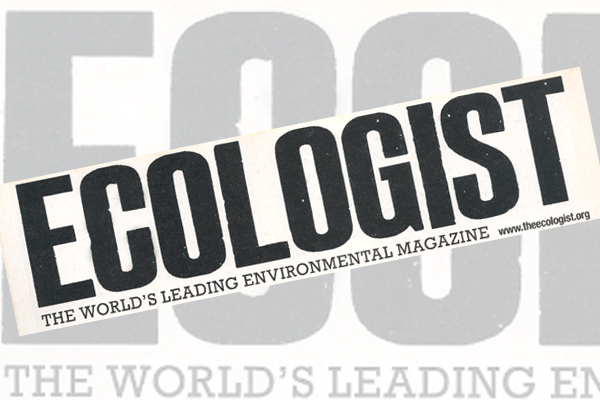Editorial: If Not Now, When?

In the pantheon of great first lines, ‘It was the best of times; it was the worst of times’ ranks pretty highly.
In the 150 years since A Tale of Two Cities was published, countless grateful journalists have opened their reflective pieces with a touch of Dickens. In a very real sense we have enjoyed, but may never see again, ‘the best of times’. We have plundered the Earth’s resources relentlessly, unthinkingly, short-sightedly, destructively. Fish stocks in most of the world’s seas are seriously depleted. Swathes of rainforest are destroyed annually. Supplies of drinking water are reducing as demand rises. Carbon emissions rise inexorably. Toxic chemicals pollute nearly everything we eat, breathe and touch. Global warming may now be irreversible. The list goes on.
And this is before we even mention any number of political conflicts in the Middle East, Africa, Iraq, Afghanistan and all points north, south, east and west; or the permanent issue of the safe ‘disposal’ of nuclear waste – or even nuclear war itself. We are truly living in The Age of Stupid, a fine film previewed enthusiastically by us last year and scheduled for wider release later this month.
In addition to the man-made destruction of the planet’s health, a relatively small handful of bankers have contributed to, if not actually caused, the most serious financial crisis in the working lifetime of any of us. The price we are all now paying for the incredible excesses of the Masters of the Universe is too high. And what is their real legacy? More coffee shops? More chain stores? And while the banks and car manufacturers enjoy government largesse, where is the ‘bail-out’ for an educational system that will guarantee a high standard of education for all – perhaps our most important investment in the future?
We try to tread a careful line at the Ecologist. We do not rejoice at significant rises in unemployment on the grounds that at least scarce resources will be preserved. Alongside our monthly reports of fresh ecological disasters (and updates of ongoing ones) we also seek out good-news stories wherever we can. While such stories provide hope, however, we will need more than this to see us through.
We are not cheerleading for recession or deflation. What we really stand for is sensible growth, sustainable growth, renewable growth. Almost any form of economic activity requires using the Earth’s resources. We are not absolutist about it. We do not dress in hair-shirts and sandals. We are not prescriptive about diets, though we are opposed to those who degrade the land and are indifferent to the suffering of animals. We accept with regret, but accept nevertheless, that natural resources will be consumed if we are all to be decently fed, sheltered, kept warm and put to productive and fulfilling work. But we do not accept that such resources must be exploited to the edge of extinction and beyond.
For individuals, the leitmotif is common sense. Consume less. Conserve more. Walk, cycle. Shop locally. Support renewable energy. Insulate your home. On the political stage, things are more complex. Will President Obama reverse his predecessor’s disastrous environmental policies? The world holds its breath. But even if he hasn’t come too late, he can’t do it all by himself. What used to be called ‘the vision thing’ has to be shared by approximately another 200 world leaders, and acted upon decisively.
The crises we face give us an ideal opportunity to re-evaluate how we should live. Let’s use the worst of times to make a new start. Because if not now, when?
- This article was first published in the March 2009 edition of the Ecologist.












